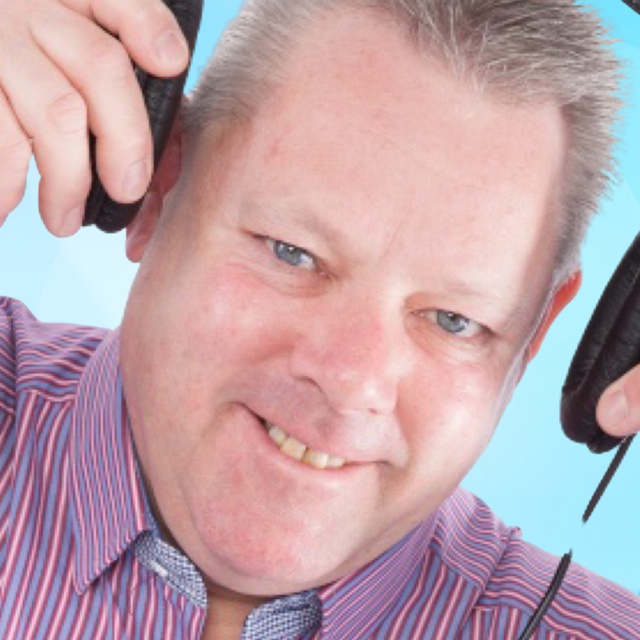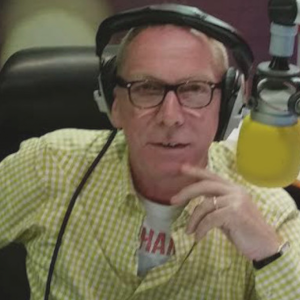

Five Week Well-being Challenge
With Athletic Therapist, Personal trainer and Yoga teacher Kim Jacob
Building habits that support our physical and mental well-being is a small but incredibly powerful step that we can take to nourish and bolster ourselves amidst a changing landscape. With that in mind I would love to suggest that we join each other in a "Five week Well-being challenge."
Often when we approach change with regard to health, we can lean towards an "All or Nothing" approach, setting ourselves unrealistic goals of a complete lifestyle overhaul, restrictive diets, rigorous exercise regimes, etc.. only to find this to be unsustainable and leave us back where we started feeling frustrated. We forget that lifestyles are built on the back of a multitude of tiny habits that require skills and practice to sustain. Chastising ourselves over having "failed" is a bit like beating ourselves up for not having mastered Mandarin Chinese having never studied the alphabet!
As with anything in life, change needs to be approached in an incremental fashion, new sets of skills are required to support new habits and lifestyle choices and building these skills takes patience, consistency and compassion with ourselves. Building confidence on the back of small successes rather than setting ourselves a "Mt. Everest style goal" is one of the simplest and most achievable ways to create momentum for ourselves and the behaviours that we wish to develop. With this said I would love to invite you to join me in this practice of building healthy habits for five weeks. Each week we will focus on one small aspect of health and then build on the habit of the previous week leaving us healthy, happy and energised as we move through the month.
Below is an outline of the 5 week plan.
1. WEEK ONE: SLEEP- Bring bedtime back by 5-10 minutes each night so that by the end of the week we are getting to sleep an hour earlier. Also be mindful of reducing time looking at a screen close to bed, opt for a book or audiobook to allow the brain and eyes some "wind down" time before sleep.
2. WEEK TWO: WATER- Ensure that we are getting minimum 2 litres of water per day and more on days of extra activity or exercise.
3. WEEK THREE: OUTDOORS- Get outside for at least 20-30 minutes daily, this could be for a walk, gardening, having a cup of tea. Prioritise daylight and fresh air.
4. WEEK FOUR: MOVEMENT- 30 minutes of movement, this could be a brisk walk, yoga, body weight exercises, a swim in the sea, dancing around the kitchen, this may coincide with outside time from the previous week. The body loves variety so try different things !
5. WEEK FIVE: MEDITATION- 5 minutes of meditation, deep breathing or relaxation. The power of this can't be overstated, this is often the one that people find the hardest to create the time for so start with a small and attainable goal!
WEEK ONE: THE IMPORTANCE OF GOOD QUALITY SLEEP
ACTION POINT: AIM TO GO TO SLEEP 5 TO 10 MINUTES EARLIER THAN USUAL EACH NIGHT SO THAT BY THE END OF THE WEEK WE ARE GETTING 30-60MINUTES MORE SLEEP.
Our focus for week one is good quality sleep. Improving our sleep is quite possibly one of the most potent and powerful steps that we can take in order to improve all aspects of our health. It is an often overlooked aspect of health, both in the functions that our incredible system undertakes while we lie sleep but also as the platform upon which the other pillars of health stand upon. I like to think of sleep as the underpinning foundation upon which the walls of movement, nutrition, relaxation and stress management can stand. Without this foundation it is hard for these walls to balance steady and strong. While there are times in life when sleep may suffer, when possible, it is truly worthwhile taking the time to prioritise and support our sleep as best we can.
Below are a few easily implemented tips for helping to ensure restful and rejuvenative sleep.
- Timing- While there can be a temptation to go to bed late at the weekends, routine is really important for good quality sleep. Try to adhere to a consistent sleep schedule, changing the timing of our sleep interferes hugely with our circadian rhythm, the bodies internal clock. Staying close to our normal bedtime even over weekends helps us to wake up fresh and well rested Monday morning!
- Food before bed- Allowing a few hours between your last meal and bedtime will hugely improve the quality of your sleep. Digestion is an “energy heavy” process and while we sleep it’s important that the body can direct its energy, resources and circulation towards integral processes of healing, detoxification and processing. Allowing 2-3 hrs after your last meal can vastly increase the quality and depth of your sleep.
- Body scan and deep breathing as we go to sleep- When we lie down taking some time to focus on gentle deep breathing as we mindfully relax all parts of the body is a really great way to allow the body and mind to be fully relaxed as we fall asleep. This again allows for a more restful, deeper night's sleep and more energy when we wake up the following day.
WEEK 2: HYDRATION
ACTION POINT: DRINK AT LEAST 2 LITRES OF WATER EACH DAY AND MORE ON DAYS OF INCREASED ACTIVITY OR EXERCISE
This week we continue our month of wellness with an emphasis on hydration. Drinking enough water each day is absolutely vital in order to maintain optimal health. Adequate hydration allows us to regulate many integral functions of the body, it keeps our joints lubricated and moving well, helps prevent illness and infections by allowing waste clearance from our cells and keeps our organs functioning well. Being well-hydrated also improves sleep quality, cognition, and mood. In the same way that poor sleep can undermine our best efforts in relation to diet or exercise, dehydration can result in low energy, brain fog, poor motivation to exercise or eat well and often our signals of thirst can be misinterpreted as hunger causing us to eat more than we actually need or require.
WEEK 3: TIME OUTDOORS
ACTION POINT: GET OUTSIDE 20-30 MINUTES EACH DAY. PRIORITISE DAYLIGHT AND FRESH AIR.
Week three’s focus is on prioritising some extra time outdoors. The benefits of time outside cannot be overstated, getting out in nature is an incredibly powerful tool for maintaining optimal physical health and mental vitality. Quite simply we as humans were designed to spend time outside, it is a necessary part of our biology, it is our natural environment without which our mood and health can suffer. The benefits to mental and physical health are innumerable. From boosting our vitamin D levels (a nutrient crucial for immunity, healthy bones and teeth and maintaining good brain function) to combatting anxiety, getting out in nature is a powerful tonic and good for the soul. Including time outside may take the shape of a walk/swim or exercise in the outdoors but below I have also attached a few other ideas to help you build a little more fresh air and sunshine into your week.
Strategies to build time outdoors into your week:
- Start your day with fresh air! Take your cup of tea or coffee outside into your garden or out onto a balcony. Starting the day with some natural light and fresh morning air can do wonders for boosting your mood, helping to tune your circadian rhythm (our body clock) and thus improving our wakefulness in the morning and sleep at night.
- For those working from home, on dry days consider taking phone calls or answering emails from outside. Schedule 5 minutes between meetings to get up and take a short walk, a break of even 3- 5 minutes around the garden can make a world of difference to your body and brain! We are not designed to be indoor creatures, sitting still for hours at a time, everything from digestion to circulation and immunity can be massively improved by incorporating some more movement and daylight into our days, so plan your schedule with a few short breaks to get up and stretch, move and breathe in some fresh air.
- Make a plan for an outdoor adventure this weekend! We all have habits of where we walk, our go-to routes, but perhaps this weekend consider planning a walk to a place you haven't been! We are blessed with the beautiful country in which we live which is pretty spectacular (even in the rain!) I have attached a few of my favourite walks below in case you need any inspiration or ideas!
- Vartry Reservoir walks in Roundwood
- Lough Dan walk from the Scouts den
- Devil’s Glen Waterfall, Ashford
WEEK 4: MOVEMENT
This week's focus is to build 30 minutes of movement into our days. This can take any shape or form, walking, yoga, cycling, jogging, swimming, gardening, dancing, the list is endless, so get creative!
In our yoga classes we often consider the concept of balance both in a physical and metaphorical sense. It is a concept that I think of often. How do we right the scales and remain in some form of equilibrium when life throws us curve balls or tips us off kilter? The way I see it, we have little control over our environment or those around us (even if at times we expend wasted energy trying to bend the world to our will!) it's a case that ultimately, we can't avoid the situations that life sometimes lobs in our direction. We can however redirect our resources toward taking responsibility for our own inner landscape, how we choose to interact with these situations, how we choose to better equip ourselves to stay in balance when the ground becomes unsteady under foot.
Step one in this process is knowing and understanding that inner landscape. Can we identify
what makes us feel good? What creates a sense of balance for us, is this family, friends,
movement, nature, art, study, meditation, cooking.. again the list is endless but put quite simply, what brings us joy? Then the next question is, how much do we give importance to or prioritise these things within our lives?
For me, movement forms a huge part of this balancing act, it helps me establish clarity, focus and direction when things feel chaotic or overwhelming, when life sends me metaphorically and unexpectedly "off piste". It creates a space to tune into my body and physical structure when my mind becomes unsettled or anxious. This can be a powerfully grounding experience. It helps to balance the "what ifs" with the "right now". It allows me re-balance the scales and establish a greater sense of internal equilibrium, creating a sense of resilience when life feels unsettled.
But how do we choose what movement practice might be best for us? Here are some of my thoughts on the questions often asked and some potential alternatives when choosing an exercise, activity or movement practice.
Some common questions asked regarding new activities.
1. What is the best way to burn calories?
2. What is the fastest way to lose weight?
3. How do I get more toned?
But in essence, what is the fastest way to get away from where I currently am?
This line of reasoning can create; A sense of resentment. Self-criticism. The idea of movement as punishment and ultimately un-sustainability, the very enemy of any approach toward better health and the adoption of consistent healthy habits.
Some great alternative questions to ask yourself when choosing.
1. What do I love to do?
2. What exercise, sport or activities bring me joy and leave me feeling alive and invigorated?
3. How and where can I bring these enriching activities into my life on a regular basis?
What this creates: Self Appreciation, Motivation, Contentment, Consistency, Satisfaction and ironically the very results that you are no longer obsessing over!
So homework for this week when adopting your movement habits..
1. Identify an activity (or activities!) that you truly enjoy.
2. Choose from a place of joy and appreciation, not punishment or self-sacrifice.
3. Create time for this activity, especially if or when things feel out of balance.
If any of you wish to join in with some yoga classes or PT sessions, my details are attached below, if yoga isn't your thing, that's cool! Choose something else and make time for it and time for yourself.
WEEK 5: MINDFULNESS MEDITATION
ACTION POINT: 3-5 MINUTES OF THE MINDFULNESS EXERCISE ATTACHED BELOW
The benefits of meditation for both the mind and body are extensive and far reaching. They include: Improved circulation, blood pressure and cardiovascular health, increased immunity, improved cognition and memory, better impulse control and emotional regulation, more restful sleep, increased clarity, confidence and focus to fully enjoy and participate in life.
Mindfulness is quite simply defined as the practice of bringing our attention to experiences occurring in the present moment. Sounds simple right? But when you really think about it, you might notice that in fact quite a lot of our time is spent reviewing and analysing past interactions or anticipating and worrying about things that may or may not happen down the line. It is not that this ability to process and review, or anticipate and plan are “bad” aspects of our cognition, in fact they are some of the very things that separate us as humans from other species of the animal kingdom! It can at times however start to detract from our peace of mind, our ability to focus or concentrate on the task at hand or even to just enjoy the many and varied experiences that life has to offer.
In essence the practice of mindfulness is the process of training our ability to place our attention where we choose, this concept of “mindfulness training” is an area that I feel can be often overlooked. There can be a misconception that meditation should be an immediate and inherently relaxing experience and while this can be the case it can often lead to people feeling like “Oh that didn’t work for me.” or “I tried that but I didn’t like it” or “I couldn’t do it.”
The idea of meditation is not to sit down, hit the “meditate button” and suddenly everything just goes gloriously and blissfully blank. It is a skill just like any other that takes practice and training, but it is a skill that when mastered can change our lives immeasurably for the better. We can’t change or control our environment but we can change our perception and how we choose to interact with the world around us. Change the lens and the picture changes.
I like to consider mindfulness training in the same way as you would any other type of physical or skill based training. If you think back to when you were a baby learning to walk, it took time, patience and PRACTICE in order to ask your legs to co-operate and get you from A to B. It would be profoundly inconvenient if they just walked you out the door each day like The Wrong Trousers, with little regard for where it is you wanted to go! We often forget that we have this same ability with our mind, we take it for granted that “the mind wanders” and we get carried along for the ride, but this doesn’t need to be the case.
So now to the process involved.. In order to train present moment awareness, we bring our attention to a point of focus, this can be anything, our breath (a fantastic place to start), an object, a mantra, anything that forms a point of reference for our attention. We observe this object and quite simply when we notice the mind starting to wander, we gently direct it back. And this is the process, every time we notice our distraction and redirect our attention, we strengthen our ability to choose where we place our awareness. This repetition of observation, distraction and returning back, trains the pathways in the brain to get more efficient at this process.
Just like a baby learning to walk, we stand up, we fall over, we stand up again, we fall over again, if we stopped at the first hurdle and berated ourselves for not being “able to do it” we would quite literally still be crawling! With time, patience and practice we gain control of our legs, so too with our minds.
Below is a simple exercise to start this process, so for this week’s challenge I would like you to perform 3-5 minutes of the exercise below every day:
- Find a comfortable quiet place to sit. Close your eyes and feel the sensations of your breathing.
- As you inhale, focus on the words “ Inhale one” as you exhale “Exhale one”, then “Inhale two”/ “Exhale two”, all the way up to “Inhale ten”/”Exhale ten”.
- As you count the breaths, just observe when thoughts, distraction or boredom start to wander in, just notice it, it will happen! And when you notice it, bring your awareness back to your counting. Every time you return your attention, you have strengthened your mind’s ability to stay focused and present.
- Be patient, be kind to yourself. Just like the baby learning to walk, avoid judging or berating yourself when you become distracted, every distraction is an opportunity to strengthen your focus and concentration.
- Start small, aim for a few minutes each day, you wouldn’t sign your toddler up for a marathon!
Kim is a personal trainer, Athletic Therapist and Yoga Teacher based in Co. Wicklow, Ireland. She offers (currently online) yoga classes, one to one personal training and injury rehabilitation consultations and programs. She has over ten years of experience in this arena and a truly holistic view of health. Her passion is empowering people to find joy in movement and health. For further details her website is www.healthinmotion.ie or should you wish to contact her directly her email is kim@healthinmotion.ie



